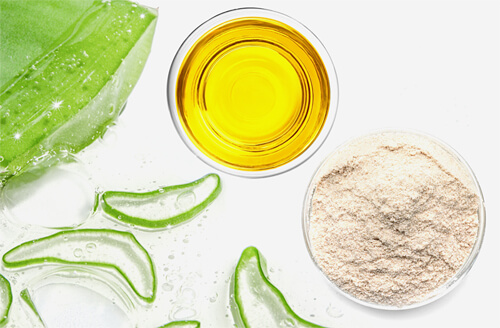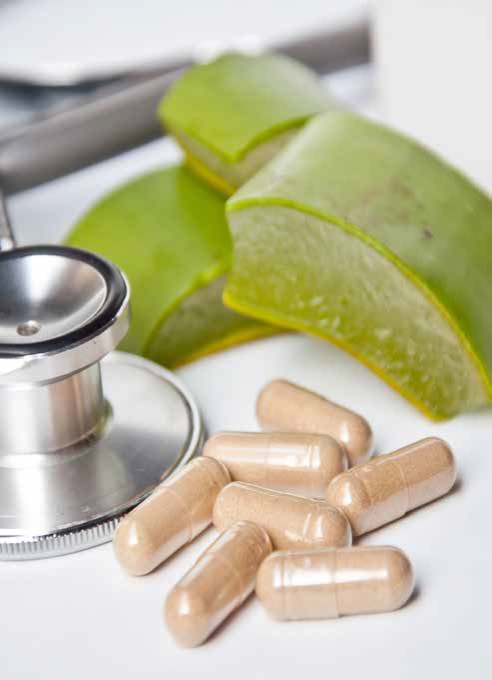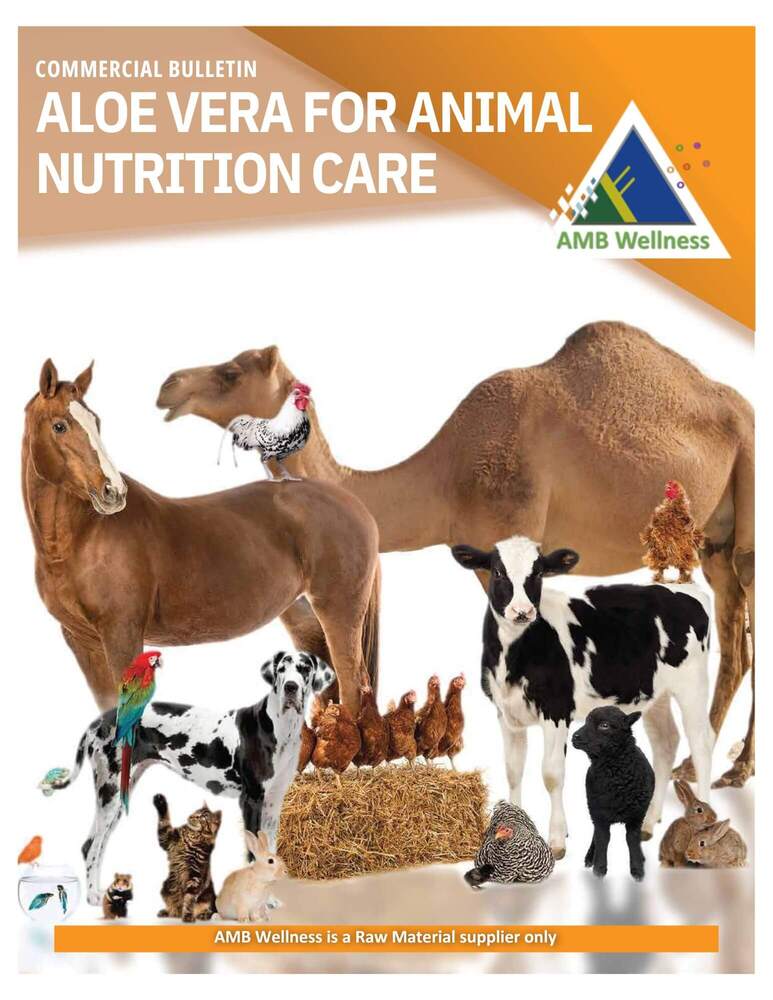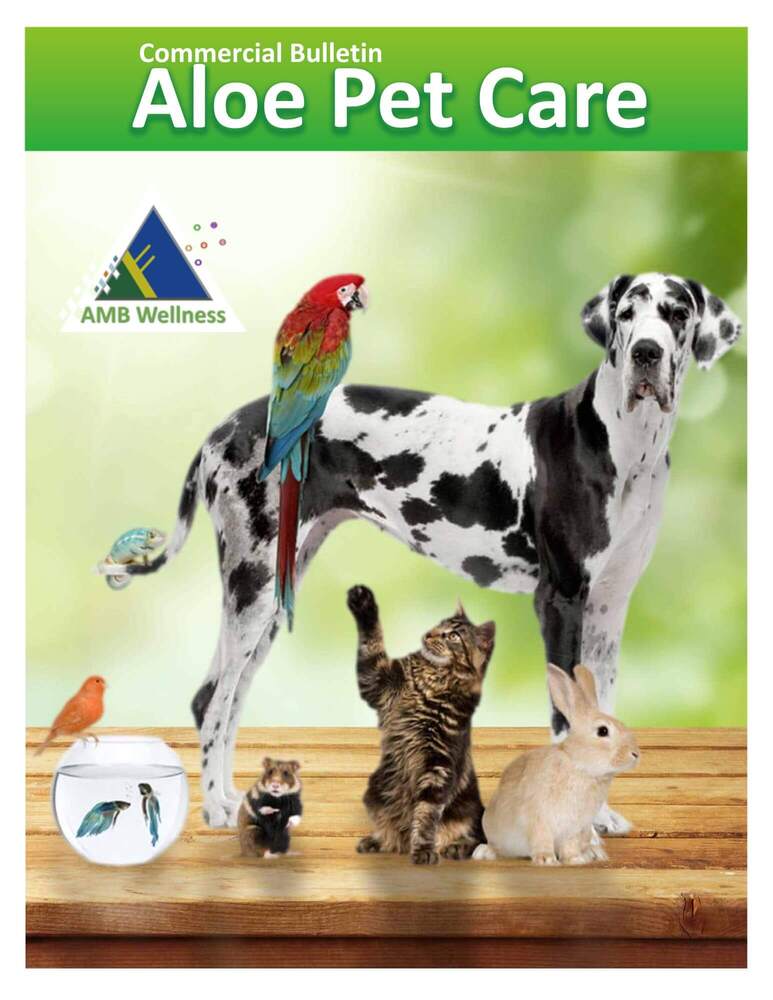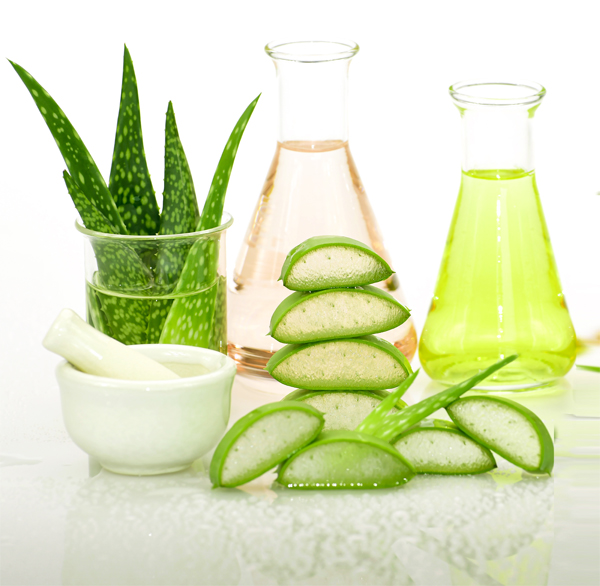Author: Dr. Rajesh Singh , Dr. Prashant Yogi,Satara,MH.
Aloe vera, as an additive to livestock and poultry feed, has great potentials for improving nutrient utilization, intestinal health, immune response and growth performance, benefits as antimicrobial agents and used for controlling coccidiosis in poultry, aloe vera added to feeds depend on several factors like form of use [powder, gel, extract (ethanolic or aqueous), polysaccharide extracted from gel], dosage, genetics of animals, ingredients of diet and farm management, ban on the use of antibiotic as a growth promoters (AGP) in animal feeds, alternatives of antibiotics in order to eliminate their impact on animals, feed additives like prebiotics, probiotics, organic acids and plant extracts have beneficial effects on animal production, Medicinal herbs properties to improve digestibility, antimicrobial, anti-inflammatory, antioxidant and immune-stimulant activity must be exploited in feeding of animals, aloe vera gel for healthy animal food as well as human health, research is dedicated to replace antibiotic growth promoter (AGP) with other additives, especially probiotics, prebiotics, enzymes, organic acids, and herbs, animal growth and performance, Medicinal herbs, as a new class of additives to animal and poultry feeds have beneficial properties such as antioxidant, antimicrobial, and antifungal as well as immunomodulatory and anticoccidial effects, supplement feeds, are helpful in achieving a larger number of objectives (improving nutrient utilization and growth performance, immunity response, intestinal microflora, and controlling particular diseases), focus is on multifunctional herbs, aloe contains more than 75 biologically active ingredients which have medicinal effects that are useful in treating diseases, many benefits of aloe vera are due to its polysaccharides contained in gel, active compound is acemannan (acetylated gluconmanan), immunomodulatory, antimicrobial, and antitumour effects antioxidants, wound healing, immune-modulatory and antidiabetic activities, source of essential micronutrients and active phyto-chemicals, chemistry of Aloe Vera, bioactive molecules, livestock feed, Biological activities of aloe vera in livestock and poultry, Higher body weight gain, better feed conversion efficiency (FCE) and production of milk, meat and eggs are important economic goals in livestock and poultry farming, experiment conducted by khan et al. on birds fed diet supplemented with 1 % or 2 % aloe vera leaves had greater body weight gain, better feed intake and FCR than those fed diets without aloe vera leaves, experiment comparing the effects of aloe vera gel (mixed with feed) and AGP (virginiamycin) indicated that AGP resulted in better growth performance compared to the performance of groups that received aloe vera gel (at 1.5%, 2% and 2.5%), Mmereole also observed that at 1 % dietary inclusion of aloe vera leaves powder in broiler diet, there was significant difference in body weight gains in birds fed aloe vera supplemented feed, Odo et al. reported that, higher weight gain in birds fed 5 % level of inclusion aloe vera than those of 10 %, Alemi et al. reported a better growth performance in broilers treated with 0.75% and 1% aloe vera gel powder, Danhoff and McAnally observed that the feeding of aloe vera accelerated the growth of new cells, thereby resulting to increase body weight , Das et al stated that the addition of 10 ml aqueous extract of aloe gel per liter of drinking water in broiler have beneficial effect on body weight gain and feed conversion efficiency that could be due to diversified antimicrobial activity of aloe vera gel, fermentation product of lactobacillus is short chain fatty acid that will reduce the pH of lower intestine and create favorable environment for gram negative bacteria, Antimethanogenic effect, active chemical constituents,

